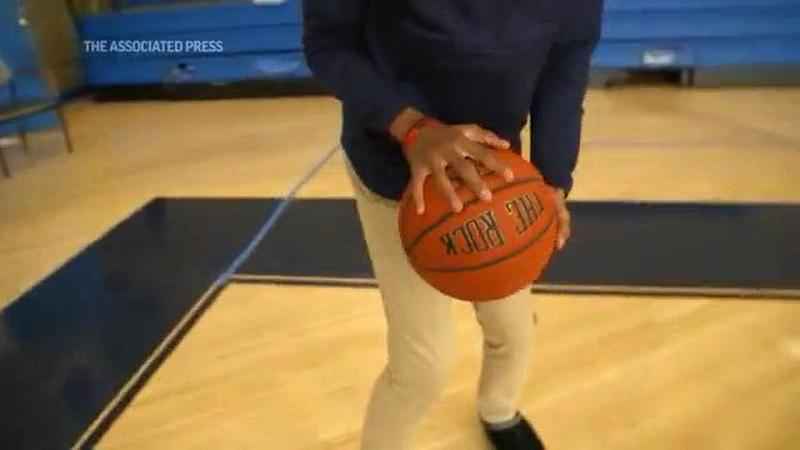Marketing deals trickle down to high school sports
[anvplayer video=”5108157″ station=”998132″]
Johnuel "Boogie" Fland is among the brightest stars in the firmament of high school basketball. He now has business deal to prove it.
The New York City teen is cashing in on his name, image and likeness through marketing contracts often referred to as NIL deals. The contracts have begun to trickle down to the high school level after the NCAA’s decision last year to allow college athletes to monetize their stardom.
Seven states have so far approved the deals for prep athletes. Other states, such as Ohio, continue to debate whether NILs would sully high school sports.
Fland, who is ranked as a top college prospect for the 2024 graduating class, is paid a percentage of sales on a merchandise company’s products carrying his likeness and four-figure monthly checks to post about the brand on social media.
Fland, 15, said he wants to help his family.

"Growing up just wasn’t the best, so I just want to do better for me," he said. "for my brothers and sisters and sibilings — I want to give them a better life, and my parents."
In Ohio, high school principals began voting May 1 on whether to change the state high school athletic association’s bylaws to allow athletes to sign deals.
Karissa Niehoff, CEO of the National Federation of State High School Associations, said NIL rights for high school athletes could prove disruptive.
"We don’t want the NIL deal to be distracting and shiny in a way that it compromises the best educational pathway — even the best sport experience," she said.
The issue of NIL deals for high school athletes follows a U.S. Supreme Court decision last June that said the NCAA cannot restrict education-related compensation benefits for the country’s nearly 500,000 college student-athletes. Since then, Alaska, California, Nebraska, New Jersey, New York, Louisiana and Utah have created laws or policies allowing NIL compensation for high school athletes.
Generally, college and high school athletes can use sports agents to market their name, image and likeness, but they are not permitted to hire agents to represent them professionally without endangering their eligibility. The standard fee for marketing agents is 15-20% of an athlete’s NIL deal.
High school athletic associations in states where NIL deals are permitted bar students from using their school names and team logos in the deals they strike.
Nearly 70% of deals involve social media posts, the Opendorse data shows.
David Ridpath, an associate professor of sports business at Ohio University, frames the opportunity for student-athletes to benefit financially as a civil rights issue. Athletes are not employees of the schools they attend and should not be restricted from earning money, he said.
"Why would we restrict that? That could end up changing the trajectory of someone’s life. And certainly as educational institutions, we can provide the tools to help manage money, to help understand money ot make it work for you," Ridpath said.